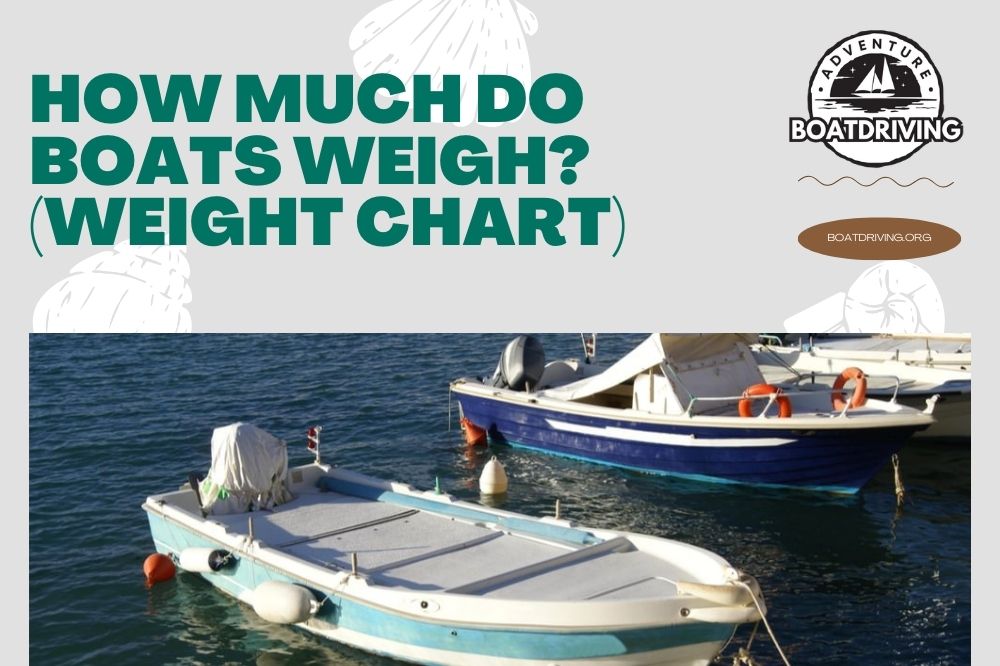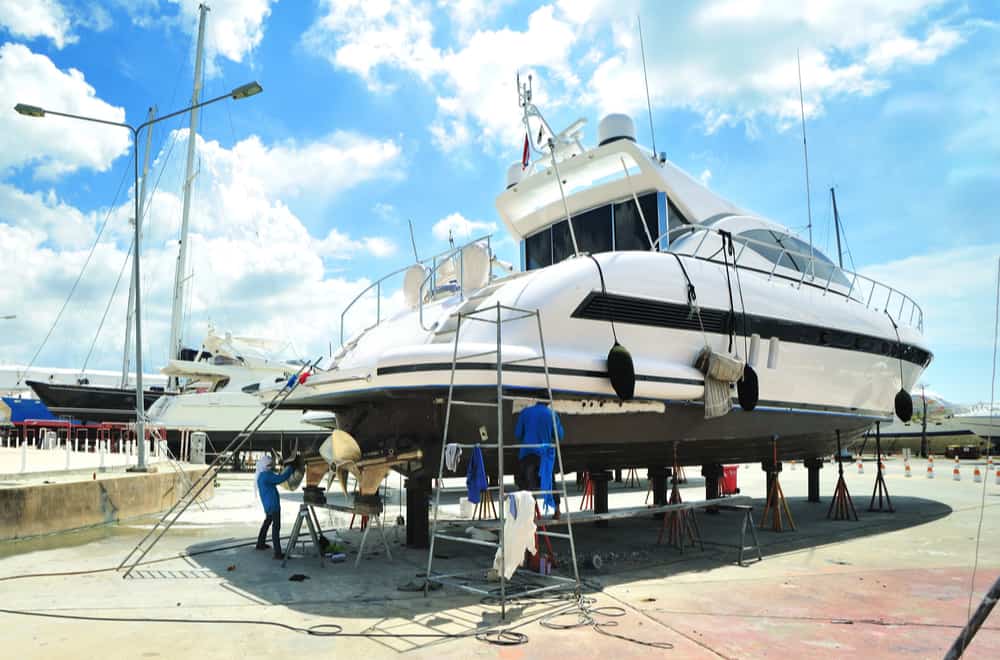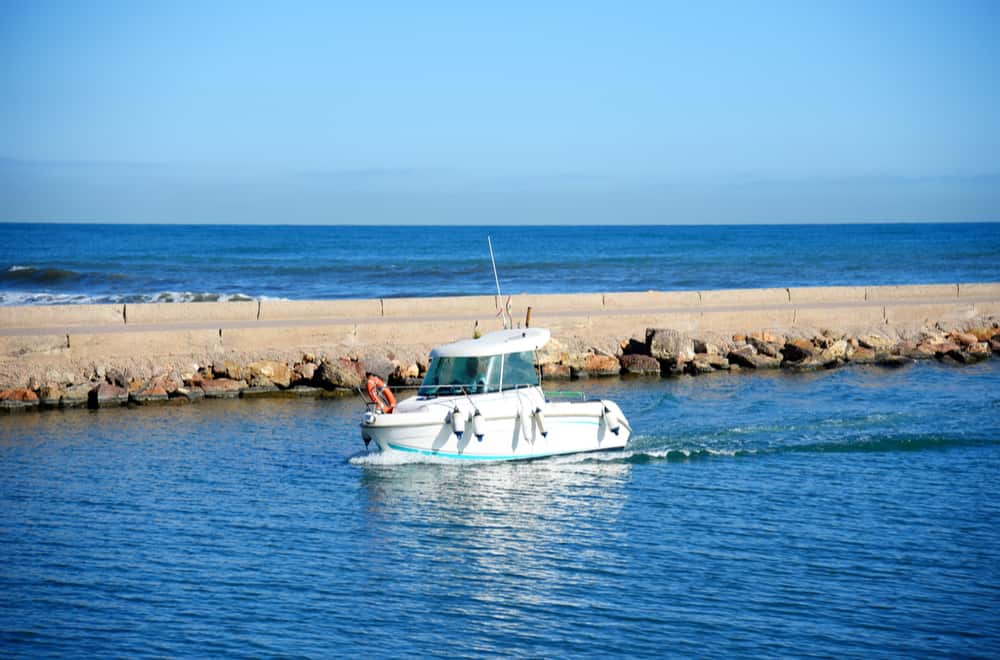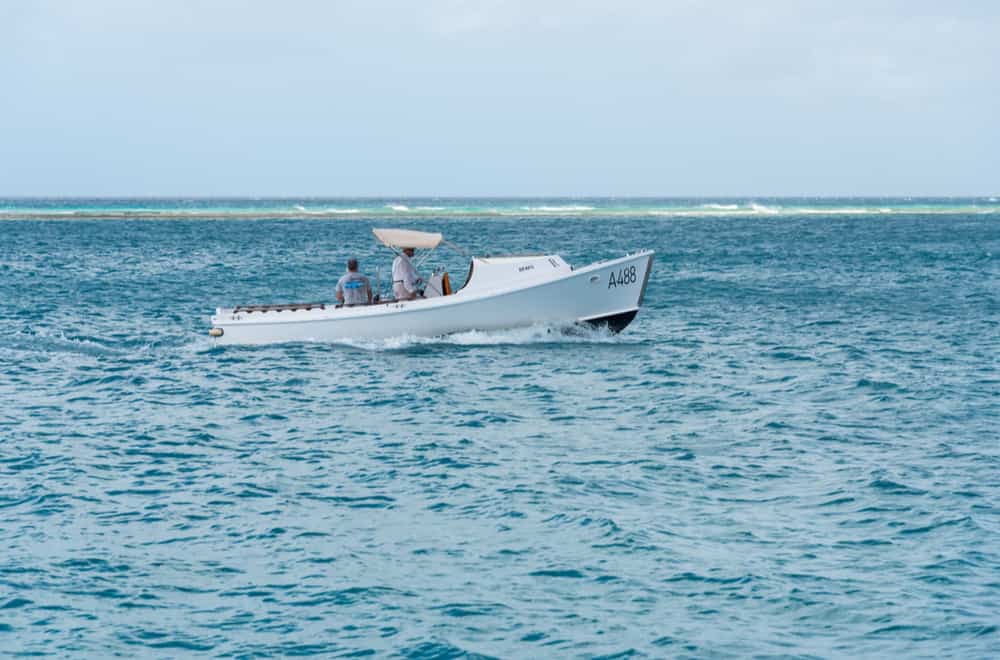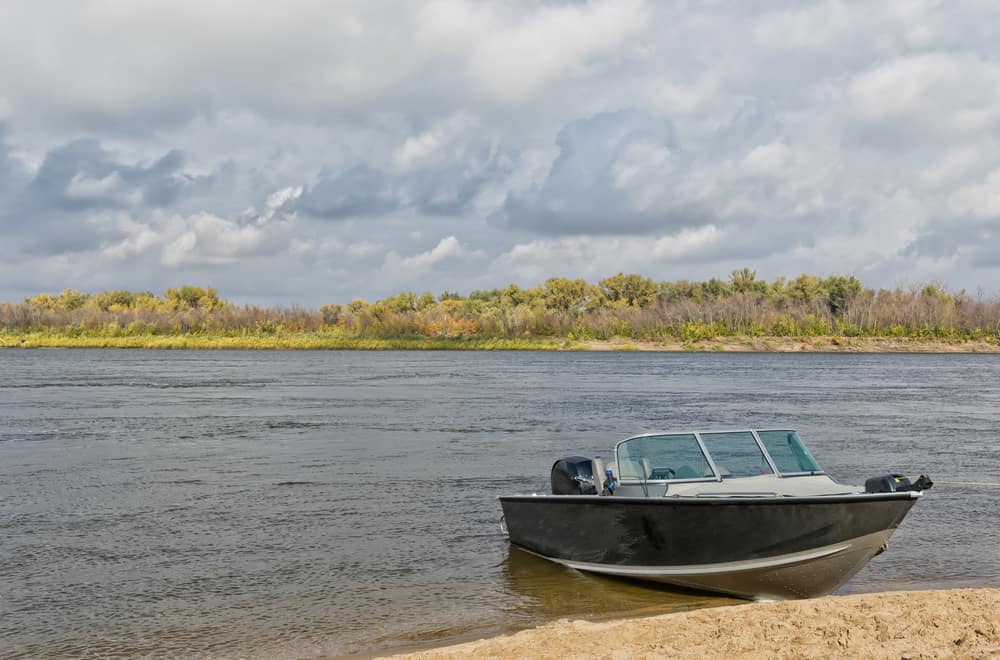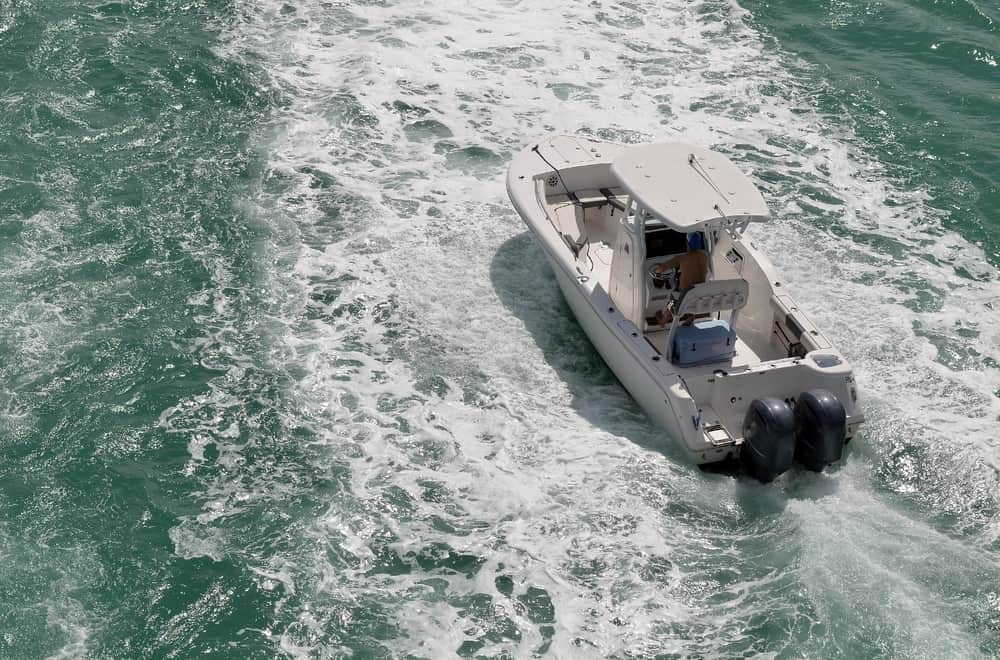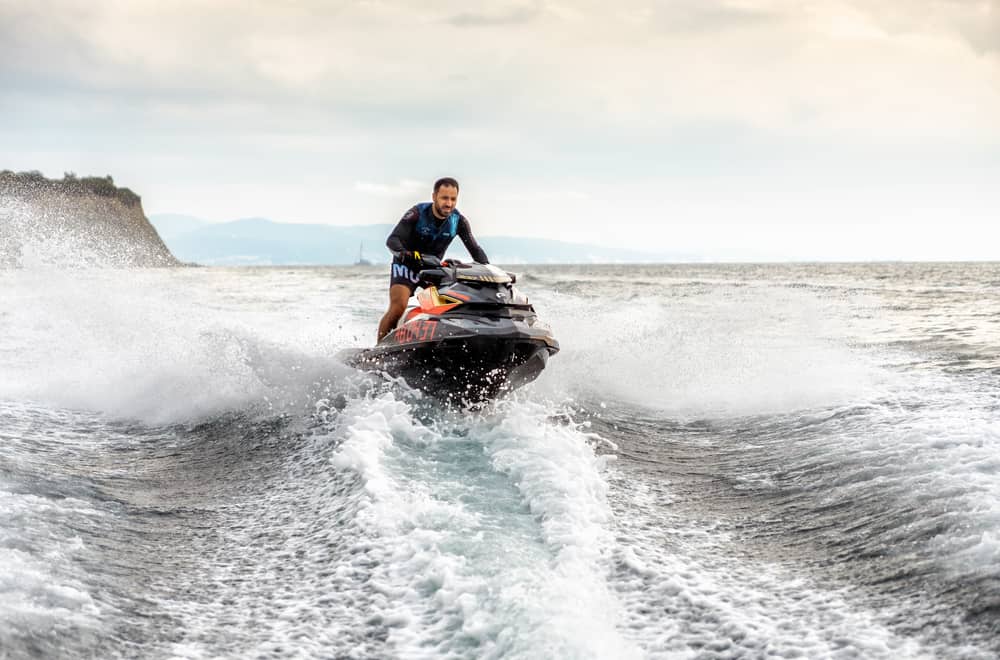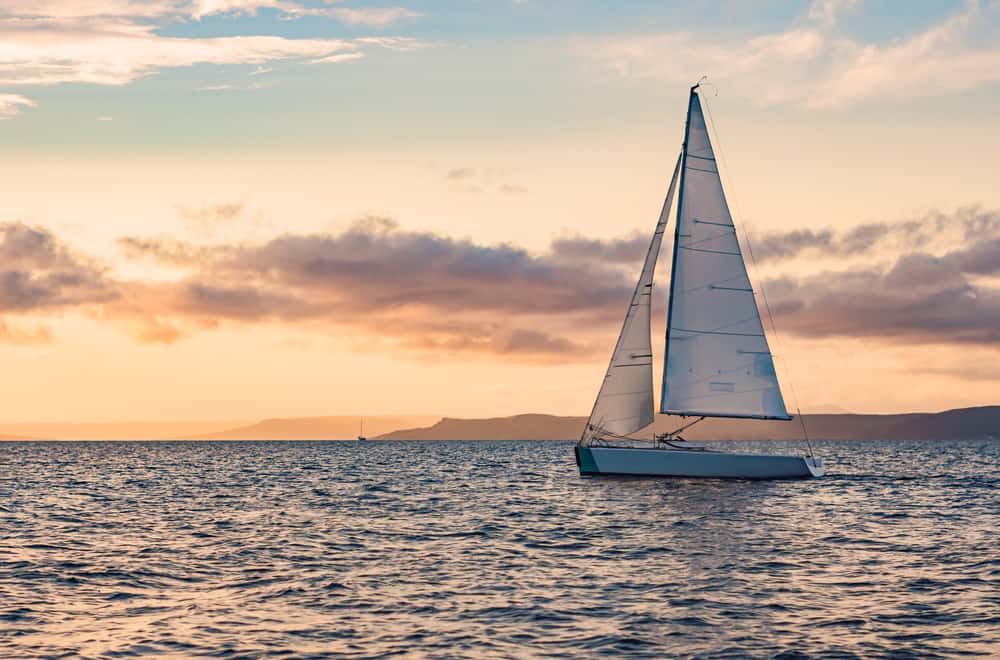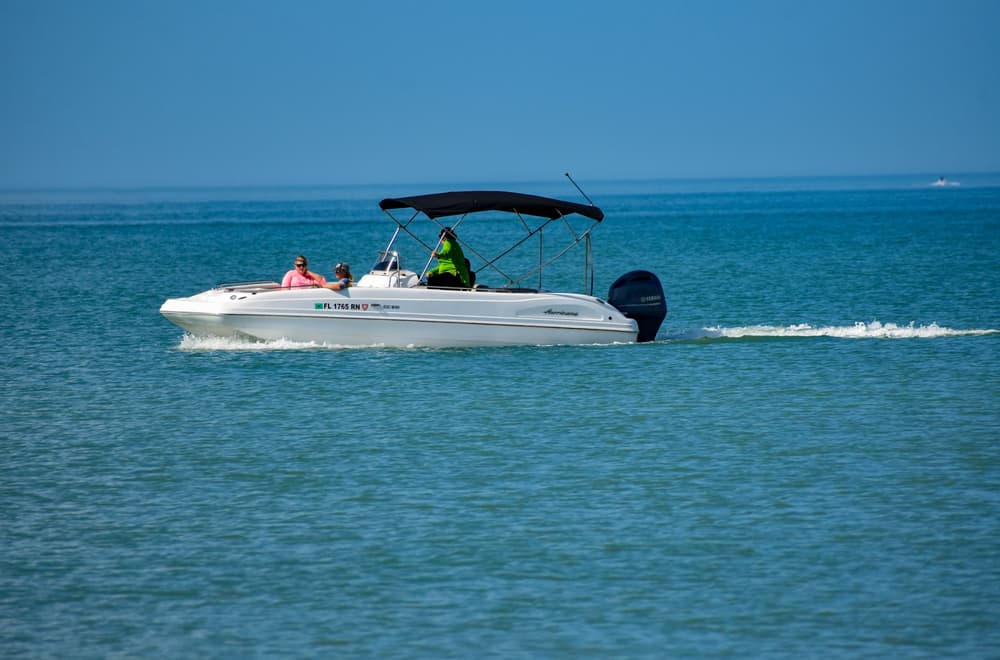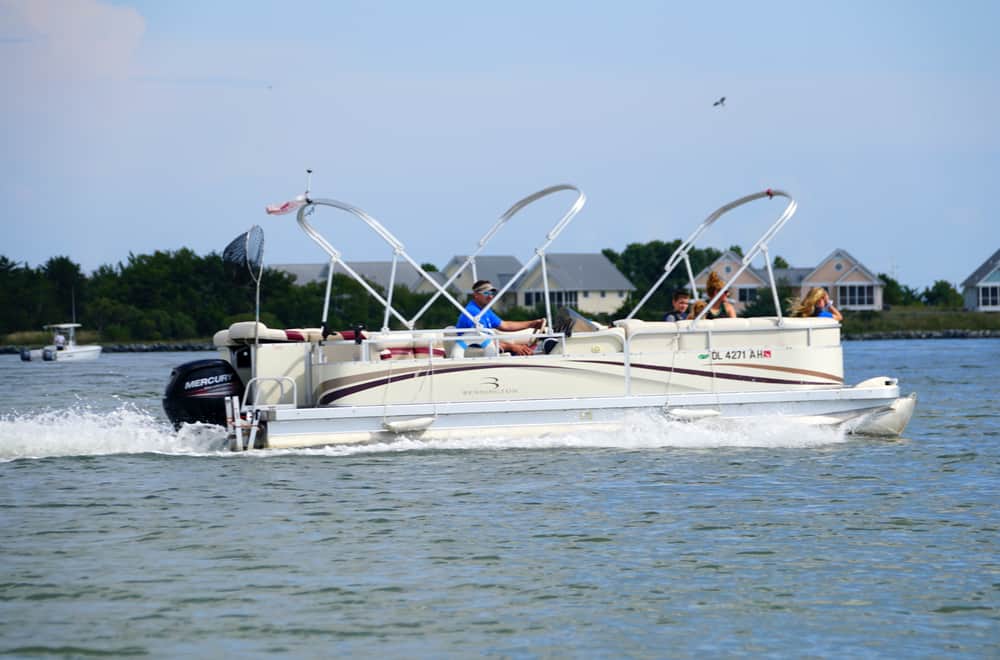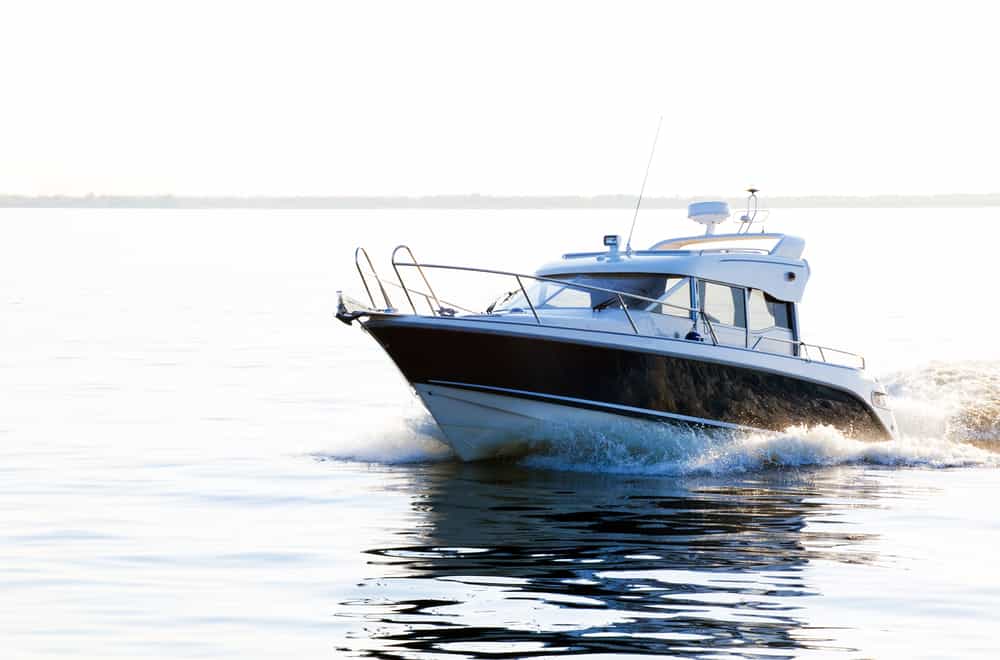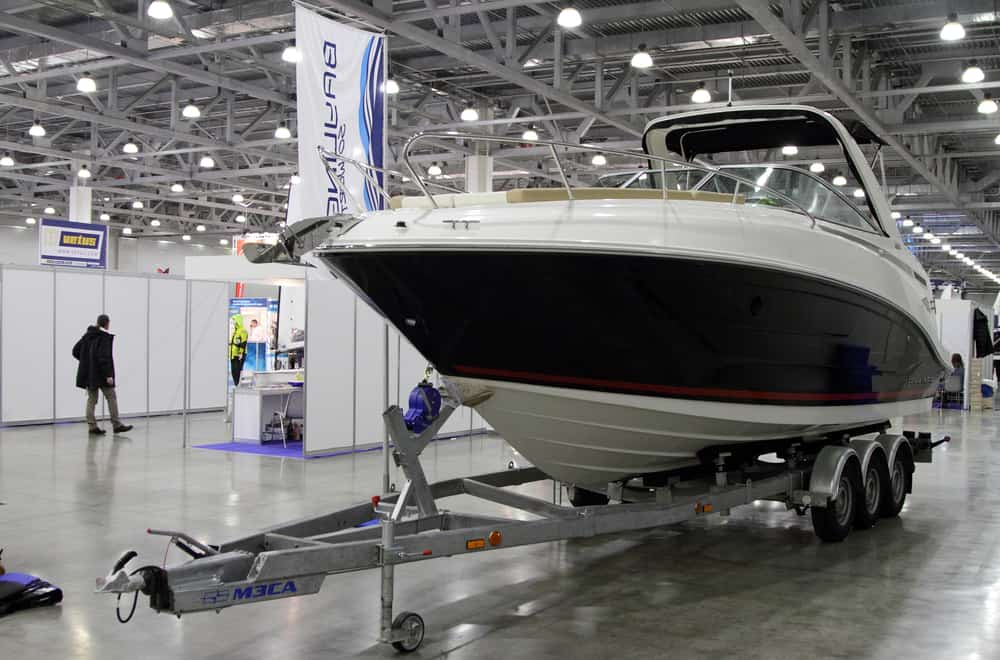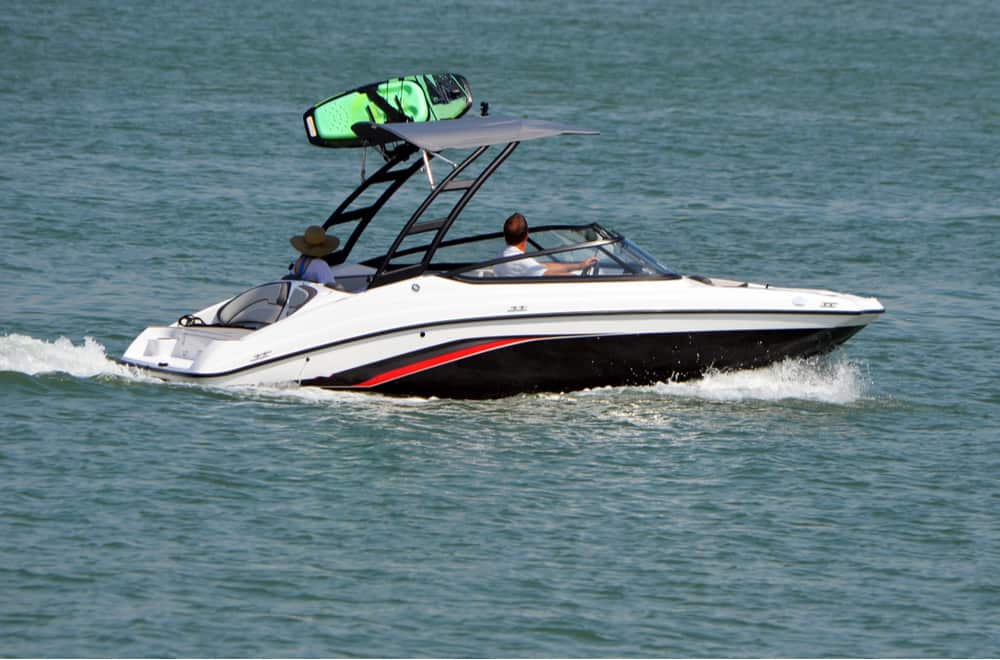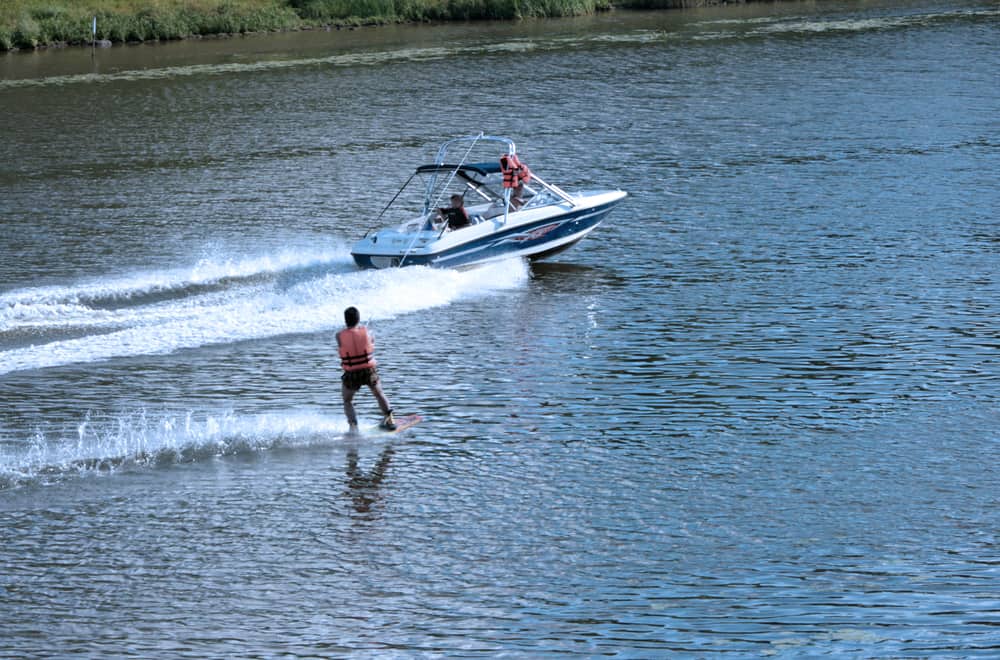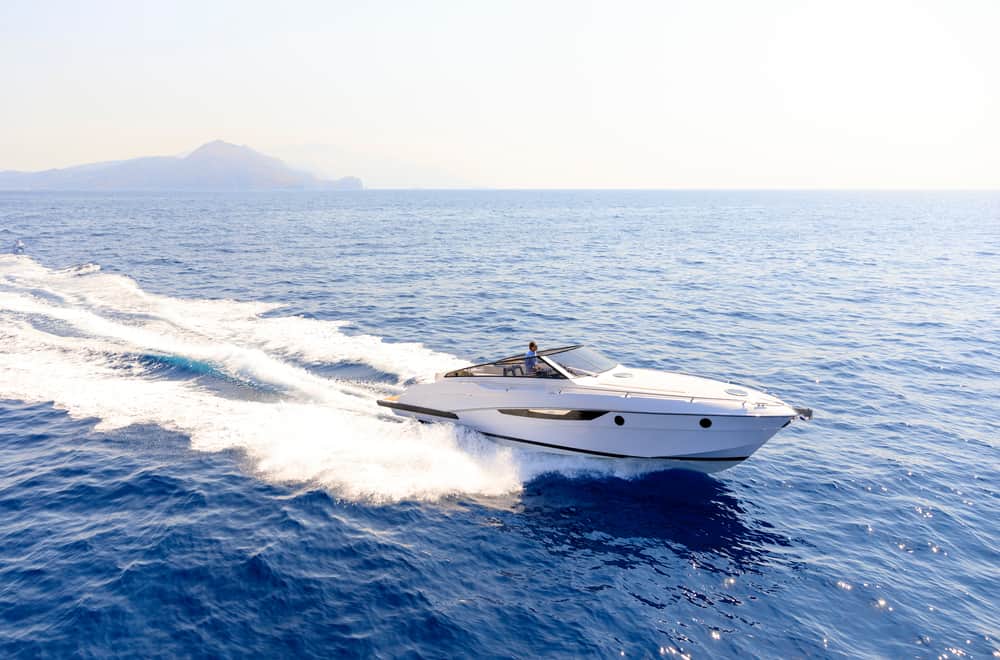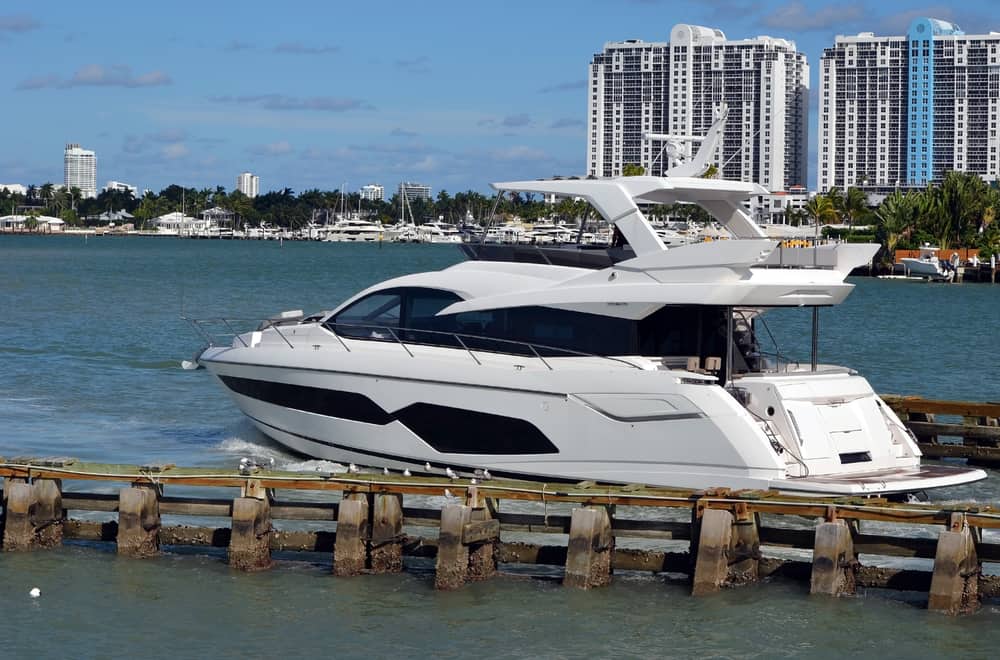Boating is one of the favorite leisurely activities worldwide. If you can buy a boat, you should do so. However, you need to check a few crucial things before taking such a step. For instance, it is crucial to know how much do boats weigh and the appropriate length that will suit your needs.
This information is not crucial while your vessel is on the water but will help you find a way of transporting your boat. If you want a more sizable vessel model, you may need to change your vehicle because of its towing ability. Plus, its weight will affect the trailer type you need. Let’s see.
Dry Weight vs. Wet Weight
The primary thing before determining how much do boats weigh is to know what does it really mean.
Dry weight
This boat’s dry weight is its mass you can find on the manufacturer’s instructions. It includes only a vessel without an engine, fuel, equipment, passengers, and trailer.
Wet weight
This measure includes the weight of the boat with an engine and fuel. Be careful when determining it since motors are heavy and can carry gallons of gas.
Remember that each gallon (3.8 l) of fuel weighs 6 pounds (2.7 kg). In other words, an average tank with 60 gallons (227 l) capacity will add at least 360 pounds (163 kg) to the boat’s dry weight.
Package weight
This weight type includes a boat with an engine packed with fuel and trailer weight. It is the weight your car needs to tow once you decide to transport the boat. Remember that a trailer size directly depends on your vessel length and weight.
Actual boat weight
It is the weight of your fully-equipped vessel with a trailer. It includes a boat with a fully fuel-filled engine, passengers, and gear, like:
- Fishing gear
- Boards
- Water toys
- Batteries
- Life vests
- Coolers
- Speakers
When these things add up, they significantly increase the final boat’s weight. Unfortunately, it is impossible to precisely calculate this measurement since the equipment is not standard and depends on your needs and boat type.
However, you can check the weights of gear most people typically carry on their vessels. Then, you can pick out things you plan to load on your boat and make a calculation.
- The trailer is approximately 1,000 to 1,600 pounds (455 – 725 kg) heavy
- Fuel weighs 240 to 450 pounds (110 – 205 kg), depending on the gas tank size
- Tower weighs 70 to 300 pounds (30 – 136 kg)
- Standard gear, like life vests and coolers, can reach 100 to 500 pounds (45.5 – 225 kg)
- Stereo with speakers and amps are about 50 to 250 pounds (22.5 – 115 kg) in weight
- Accessories, including ballast tanks and heater, will add 50 to 450 pounds (22.5 – 205 kg)
As you can see, you will potentially add an extra 1,500 to 2,200 pounds (680 – 1,000 kg) to the dry boat weight. Plus, you also need to calculate the number of people coming to your boat and their average weight.
Even though it is only a rough estimate, you can get an idea of things that impact your vessel’s weight. Plus, you will know what to expect before picking out a vehicle to tow it and determine the load your boat can carry while sailing.
The Most Towable Boats
The boat’s weight will directly affect its towing capability. Therefore, you should check all possibilities before choosing the model you want to buy.
Skiff
A skiff is a mini, under 20 feet (6 m) long boat suitable for shallow water and tight fishing spots. It is typically 300 to 900 pounds (135 – 410 kg) heavy and comes with a small light motor.
You can move this vessel made of light materials like aluminum or fiberglass with a long pole. It is also practical for towing, and you only need a car or crossover for such an activity.
Fishing boat
An average fishing boat can weigh 300 to 2,500 pounds (135 – 1,100 kg), depending on the material used for its making. Most people pick out one of the standard models weighing approximately 1,700 pounds (770 kg).
The excellent thing is that you can tow it effortlessly, but the type of vehicle you need directly depends on your vessel type and weight. You can tow smaller models with your car, crossover, or SUV, but you need a truck for towing heavier boats.
Aluminum fishing boat
An aluminum fishing boat is 16 feet (4.9 m) long and 300 to 500 pounds (135 – 225kg) heavy on average. It comes with a flat or a deep V bottom and uses a small electric or outboard gas engine. All in all, its weight is almost always under 1,000 pounds (453.5 kg).
If you have a fishing boat with a small motor, that weight will be about 650 pounds (295 kg). A sizable engine increases that value to about 900 pounds (410 kg).
Fiberglass fishing boat
This durable, 16 to 20 feet (4.9 – 6 m) long fishing boat is typically 1,500 to 2,500 pounds (680 – 1,100 kg) heavy. Some sizable models can weigh 2,900 pounds (1,315 kg). You can expect it to reach at least 5,000 pounds (2,270 kg) with an engine and trailer.
Boat weight |
||
| Boat type | Average boat weight | Vehicle for transportation |
| Skiff | 300 to 900 pounds (135 – 410 kg) | Car, crossover |
| Sailboat
(14 to 18 feet/ 4.3 – 5.5 m) |
400 to 800 pounds (180 – 360 kg) | Car, crossover |
| Fishing boat (aluminum) | 300 to 500 pounds (135 – 225 kg) | Car, crossover, SUV |
| PWC | 800 to 850 pounds (363 – 385 kg) | Car, SUV, van, truck |
| Fishing boat (fiberglass) | 1,500 to 2,500 pounds (680 – 1,100 kg) | SUV, truck |
| Bowrider boat | 3,000 to 3,500 pounds (1,350 – 1,600 kg) | SUV, truck |
| Pontoon | 3,000 to 5,000 pounds (1,350 – 2,300 kg) | SUV, truck |
| Deck boat | 3,000 to 5,000 pounds (1,350 – 2,300 kg) | SUV, truck |
| Cuddy cabin | 3,000 to 5,000 pounds (1,350 – 2,300 kg) | SUV, truck |
| Wake boat | 3,000 to 5,000 pounds (1,350 – 2,300 kg) | SUV, truck |
| Ski boat | 2,000 to 6,000 pounds (kg) | SUV, truck |
| Sailboat
(20 to 30 feet/ 6 – 9 m) |
4,000 to 8,800 pounds (1,800 – 4,000 kg) | Truck |
| Speedboat | 8,000 pounds (3,600 kg) | Truck |
| Cabin cruiser | 9,000 to 16,000 pounds (4,000 – 7,250 kg) | Truck |
Personal watercraft
PWC (personal watercraft) is often known as Jet Ski and Wave Runner. It is technically not a boat, but people who enjoy fun water activities consider it a one-person boat. With a weight of only 800 to 850 pounds (363 – 385 kg), it is in a group of lightweight vessels you can carry with a car, SUV, van, or truck.
Sailboat
Sailboats are vessels you need to propel by sails. They come in wide weight ranges, and you can find models weighing 120 to 36,000 pounds (54.5 – 16,330 kg).
In other words, it can be tricky to transport if it is hard to tow it. You should have a car or crossover for smaller models, but even trucks can’t tow the most sizable ones weighing over 12,000 pounds (5,443 kg).
You can roughly divide sailboats into two groups, depending on their measures:
-
14 to 18 feet (4.3 – 5.5 m) long sailboats
So-called day sailboats without onboard overnight accommodation are typically 14 to 18 feet (4 – 5.5 m) long. Most models weigh 400 to 800 pounds (180 – 360 kg) in total. It primarily depends on the material they are made of, including aluminum, fiberglass, or wood.
You can pick out this model to sail on calm waters like lakes and bays. A car and crossover are typically strong enough to tow this boat even long distances.
-
20 to 30 feet (6 – 9 m) long sailboats
You can use 20 to 30 feet (6 – 9 m) long sailboat for family cruising, but some models include cabins for sleeping. Vessels over that length are considered yachts. The expected weight is 4,000 to 8,800 pounds (1,800 – 4,000 kg), and you can have difficulties carrying your boat even with a truck.
Bowrider boat
This boat type made of fiberglass is a desirable option for comfortable short cruises. You can find 16 feet to 25 feet (4.9 – 7.6 m) models with an inboard or outboard engine. Their total weight is 3,000 to 3,500 pounds (1,350 – 1,600 kg) on average, so you need an SUV or truck to tow it.
Pontoon boat
Most pontoon boats with two or even three hulls weigh 3,000 to 5,000 pounds (1,350 – 2,300 kg). As you can guess, only an SUV or truck can tow such a sizable vessel.
Be careful if you have a small SUV since some models can’t deal with such a weight. Pus, always check this boat’s width to prevent possible problems with towing it along the road.
Deck boat
Thanks to enough deck space, a deck boat is an excellent 20 to 30 feet (6 – 9 m) long option for family day cruises. They are similar to pontoon boats but with only one hull. Since most models are 3,000 to 5,000 pounds (1,350 – 2,300 kg) heavy, you will need an SUV or truck for transportation.
Cuddy cabin
With a small sleeping area and short-term cruising capability, this boat combines a bowrider boat and cabin cruiser. You can find it in the 20 to 30 feet (6 – 9 m) length range.
Its weight is 3,000 to 5,000 pounds (1,350 – 2,300 kg) on average. Considering these measures, you can see that only a sizable SUV and truck are options for towing.
Wake boat
This vessel is an excellent option for watersport enthusiasts and surfers, thanks to its ability to make waves behind the hull. Most models are 20 feet (6 m) long with 3,000 to 5,000 pounds (1,350 – 2,300 kg) of dry weight.
Since you need to add an engine and tailor weight to this number, you will need an SUV or truck for safe transportation.
Ski boat
An average ski boat will weigh 3,500 pounds (1,600 kg), but you can find them in a weight range of 2,000 to 6,000 pounds (910 – 2,700 kg).
This vessel model has become highly popular in recent years because of activities you can use it for, like water skiing and wakeboarding. The only way to effortlessly tow this boat is to have a middle-sized SUV or truck.
Speed boat
The so-called cigarette boat has a slim and stylish outer design that can vary depending on the model and make. Its purpose is to be fast and provide the thrill of the ride.
This sleek and stylish boat typically comes with an average weight of 8,000 pounds (3,600 kg). However, you can find drastic weight differences because of robust engines.
Even though this vessel is not challenging to tow, you need to have a sizable SUV or truck for this purpose.
Cabin cruiser boat
A cabin cruiser is actually a small, 25 to 45 feet (7.6 – 13.7 m) long yacht weighing 9,000 to 16,000 pounds (4,000 – 7,250 kg) on average. It is like a mini portable house you can use on the water with enough inside space for sleeping when necessary.
Keep in mind that the sleeping accommodation size will directly affect its weight. You can consider buying this vessel only if you have an appropriate truck for towing.
Vehicle Towing Capacity
Before buying a boat, you need to determine its weight with complete equipment and trailer to determine the vehicle type you need to tow it. If you pair the wrong car with a too heavy boat, you will probably cause irreparable damage and lose money instead of enjoying sailing.
Vehicle towing capacity |
|||
| Vehicle type | Vehicle model | Towing capacity | Boat type it can tow |
| Hyundai Santa Fe | SUV | 3,500 pounds (1,600 kg) | Fishing boat, smaller ski boat types, sailboat |
| Chevy Colorado | Truck | 7,000 pounds (3,175 kg) | Fishing boat, ski boat, some sailboats |
| Toyota Sequoia | SUV | 7,400 pounds (3,355 kg) | Fishing boat, ski boat, some sailboats |
| Toyota Tundra | Truck | 9,000 pounds (4,100 kg) | Any towable boat type |
| Ford F-150 | Truck | 9,000 pounds (4,100 kg) | Any towable boat type |
| Ford Expedition | SUV | 9,200 pounds (4,200 kg) | Ski boat, sailboat, speedboat, some Cabin cruisers |
The only option you can make is to think of purchasing an adequate vehicle before considering a heavier boat type.
Summary
The boat weight is a vital deciding factor you should keep in your mind before purchasing one. You should check both dry and wet weight to ensure your safety while on the open waters. Plus, this measurement will help you pick out the proper trailer and match it with the vehicle you own.
